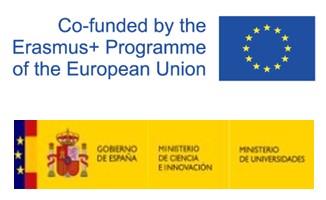The Universitat Jaume I (UJI) is the public university in the north of the Valencian Community, a region on the European Mediterranean coast located among the cities of Valencia, Barcelona and Madrid. Established in 1991, the UJI has positioned itself as a friendly university characterised by its personal attention, smooth-running management procedures and the high levels of participation of its members in university life, due, among other things, to its convenient size, with about 15,000 students, and its integrated, modern, functional and sustainable campus
The close relationship among lecturers and students at the Universitat Jaume I enables lecturers to reach a level of educational excellence that guarantees a clearly defined educational model based on lifelong learning, integral education and active participation in social progress based on the foundations of peaceful, equitable, supportive relationships and respect for the environment. The UJI is also distinctive for the international outlook of its activities, a result of the need to open up to the world, characteristic of young European universities, and of the socioeconomic needs of the Valencian region.
Founded when the information society was fully immerse in the process of consolidation, the development of the Universitat Jaume I has been marked by advances in information and communication technologies (ICT). For this reason, the application of ICT in learning and research processes and in university management has always featured at the Universitat Jaume I, to the point that it was a pioneer in this field with initiatives such as the creation of the first Spanish web server or the first Centre for Education and New Technologies in Spain.
MEICRI (Auxi Sales, Odet Moliner and Aida Sanahuja) is an interdisciplinary group that comes together in the field of educational improvement towards horizons of critical citizenship. Since this approach provides educational services and research and innovation projects towards the understanding of intercultural realities and inclusive practices that promote equity, solidarity and social transformation. The main field of research is Intercultural and inclusive Education. This field offers a chance to continue investigating, sharing, analysing and discussing the current status of intercultural and inclusive education. The aim is to build a common working reference on key factors that define the multi-dimensional concept. This field focuses on research of the strategies that have favoured academic and social inclusion of vulnerable people by investigating the key supports that have enhanced their lives.
IDOCE (Reina Ferrández-Berrueco, Lucía Sánchez-Tarazaga and Paola Ruiz Bernardo) is an interdisciplinary group that combines the processes of innovation, reflective practice and assessment around competence-based training to facilitate the comprehensive development of students at any stage or level of education. Our research interests focus on work-based learning under the reflective practice scope. We look for developing critical citizenship through active and participatory methodologies. This includes not only students at the initial educational stages, but also, and above all, the higher education and the preparation for work. In this sense, universities have the responsibility to prepare these citizens for the labour market, but not only as technicians’ experts in how to do their work, but also as reflective professionals aware of the consequences of what they do.
